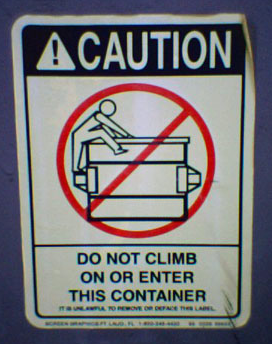 A Ramblin’ Gamblin’ Willie story
A Ramblin’ Gamblin’ Willie story
Sunday, December 24, 1995 – Christmas Eve
I can be counted upon to walk, after all.
When everybody’s nowhere and even the laundromats are empty. When the respectable stores are closed and the line at the 24-Hour Slurp ’n’ Burp is 15 deep with people craving cold beer and hot salsa and high-octane unleaded. When there’s one lonely mailman in an immense empty truck delivering insanely last-minute gifts sent via God-Help-Me-If-I-Screw-It-Up-Again Express Mail. When the streets are empty and the highways are empty and the parking lots are empty and, for once, even the bars are empty – I can be counted upon to walk. You’re at home with the yule log blazing, with a glazed ham baking, with a Bordeaux breathing, with the children seething to tear into that cache of treasures parked beneath the tree. And Uncle Willie’s out walking on Christmas Eve, dragging his pencil on the pavement for no good reason at all.
“Storm windows,” John Prine sings. “Gee, but I’m getting old. Storm windows, keep away the cold.” And that’s a silly enough thought in the great outdoors. I was cutting through an apartment complex and the closed-for-the-holidays supermarket next door had left its parking lot speakers blaring. And the radio station was playing a song they’d never play if they thought anyone was listening.
I can hear the wheels of automobiles
so far away, just moving along through the drifting snow.
It’s times like these, when the temperatures freeze
I sit alone, looking at the world through a storm window.
Down on the beach, the sandman sleeps.
Time don’t fly, it bounds and leaps.
The country band, it plays for keeps.
They play it so slow…
I was about twenty feet away from a big blue dumpster and I heard a rustle. You can take the boy out of the city, but you can’t take away the boy’s revulsion for rats, and I was suddenly in the mood to be walking elsewhere. But then there was a big tumble-rumble-boom, something big knocking into the steel walls of the dumpster, and I knew it wasn’t a rat.
And I knew what it was, too, and so do you. We call them dumpster divers, dismissing them with a lame joke. We read about them in the papers when some reporter wants to convince us we’re insufficiently taxed or when one of them falls asleep inside a dumpster and gets crushed by the compactor of a garbage truck. We ignore them, mostly, because they’re revolting, but we can’t resist being berated with the idea that they’re a metaphor for our perfect indifference, those people whom we have thrown away. The penance we pay for ignoring them, as we sit down to feast, is a moment’s spasm of guilt – sinfully delicious – as an appetizer. But in fact we have not thrown them away. Other people are not ours to dispose of or reclaim, and dumpster divers are simply people so poor that they mine as wealth the treasures we spurn as garbage. Indulge your guilt if it pleases you, but you are not at fault.
But I am not proud of you for looking away, and I make a point, perhaps a vanity, of looking where you refuse to. I called out, “Yo!” This is a universally understood term of street argot; it means: “I may have a gun, and you’d better find out.”
Tumble-rumble, tumble-rumble. The side door of the dumpster swung open. A muffled voice called out, “I ain’t hurtin’ nobody. I ain’t hurtin’ no one.” An old, old black man stuck his head out and peered around. He was so thin I could see every bone and blood vessel in his head and his cheeks were sunk in where his teeth used to be. His hair was covered by a grimy doo rag and there was an unfiltered cigarette, grey with dirt, tucked behind his ear. He stood up inside the dumpster and stood with his arms hanging from the sides of the doorway, framed like some hideous post-modern crucifixion. His clothes were rags and they were covered with filth.
I couldn’t contain myself. I said: “Holy Christ…”
He cackled and said, “Not today.”
There was nothing I could say, so I said nothing.
He saw me staring so stupidly and said, “Everybody gets what they deserve. Everybody.”
I said: “But—” But nobody deserves this.
“I thought to have it both ways, son. So now I got it no way at all. I wanted to have me somethin’ for nothin’. But it don’t work that way. Instead, I gave up every little somethin’ I had, and I got nothin’ in exchange.”
“Nothing…?”
“I got me that bicycle over there. I got me these soda cans, forty cents to a pound. I got a culvert pipe I sleep in, it’s dry most of the time, don’t smell too bad.”
“Oh, man,” I moaned.
“Don’t you pity me, boy! I ain’t got nothin’, but I got my pride. I ain’t gonna let you pity that away!”
I smiled at that. I said, “Wouldn’t think of it.”
“And don’t you go tryin’ to give me your money!”
I said, “Wouldn’t think of it.”
“I had enough of other people’s money! Ain’t nothin’ costs so much as somethin’ you stole, and charity is just stealin’ with guilt for the gun. I don’t steal no more, no way, no how. I ain’t got nothin’, but it’s all mine, right and proper.”
I said, “How did… How did you get here?”
He chuckled, answering the question and not the words. “I got away with it, boy. I got away with it all!”
I said, “…?”
“Gotta go to school, can’t play hookey?” He thumbed his chest. “I got away with it. Gotta get a job, can’t shoot craps for a livin’? I got away with it. Gotta tell the truth, can’t tell no lies? I got away with it. Gotta be true, can’t run around on your woman? I got away with it. Can’t mess with them nasty white powders? I got away with it. Can’t be rippin’ off strangers, then neighbors, then friends? I got away with it. Just look at me, boy. Can’t you see I got away with everything?”
I said nothing, just swallowed hard.
“They said a man can’t live without standin’ firm for the things he believes in. Mister, can’t you see? I got away with it!” He cackled mirthlessly.
I stood lost in thought for a moment. I said, “You’re paying penance. Aren’t you?”
“Boy, I’m just payin’. Ain’t lookin’ for no easy way out. There ain’t no easy way out.”
I nodded, and I guess that was answer enough. He jumped down out of the dumpster and stood before me. He didn’t smell too bad. He stuck out his hand, offering to shake. I couldn’t tell if the look in his eyes was a plea or a challenge. Maybe it was both.
I took his hand and didn’t flinch. I shook his hand as though he were a banker or a lawyer or the smiling, beguiling salesman from Munificent Home and Life. I shook his hand as though he were a human being. Because he is.
He said, “Mister, you’ve got guts.”
“So have you.”
He smiled, and the smile was devoid of every trace of merriment. “Guts is what I got left, brotherman. Guts is what I had that couldn’t run out on me.”
“But you could have chased it away.”
“Could have. And then I’d have nothin’ at all.”
“Or nothing worth having…”
He smiled again, and this time there was a little light in it. “Merry Christmas.”
I nodded with a solemnity that I have never conferred upon any banker or lawyer or insipid insurance salesman. I said: “Merry Christmas.”

From the Ramblin’ Gamblin’ Willie Christmas story collection, available at Amazon.com
And isn’t that a dainty dish to set before the king? And yet this is every bit of treasure my life has afforded me, and I confer it upon you with all the solemnity I can muster. You can spurn it, but you can’t return it. And if you throw it in the trash, you may see it again someday. I hope you get what you want. I make me no doubt you’ll get what you deserve.
Merry Christmas.















